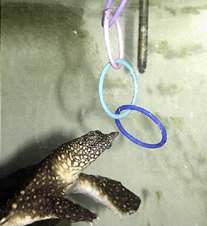
The average vet student is a driven and determined individual who remains focused on the destination of “becoming a vet” despite all the challenges they will inevitably face. There is often encouragement from senior family members and schoolteachers, who beam with pride at their progeny’s career choice – it’s a justified response, after all. The journey is arduous and gruelling, both mentally and physically, and thus deserves the respect it invariably generates.
Chapter 1 – Beginnings
The path to graduation is structured and well-tarmacked; however, what lies beyond “finals” is somewhat off-road by comparison. Of course, there may not be anything wrong with this, as the options for equine vets are many and varied for employment, fields of work and further qualifications. Some find themselves working in certain circles of equestrian discipline, from racing or leisure horses to polo or Olympic-level sports. Others specialise in a veterinary discipline, from medicine to surgery, sports medicine to imaging. The bulk of general practitioners invariably work in several of these areas to varying degrees – for many, this is much of the appeal.
The path to graduation is structured and well-tarmacked; however, what lies beyond “finals” is somewhat off-road by comparison
When your career can take priority, the world can be your oyster as an equine vet. There are opportunities to work with everyone, from national teams and international racehorse trainers to rare-breed enthusiasts and hobby riders all around the world. The ability to provide first-opinion veterinary services exclusively from your vehicle means that working as a sole practitioner is a viable option, albeit an extremely demanding one. For many equine vets, the first chapter of their careers as a qualified vet seems to chime with their undergraduate experiences: hard work, hard-earned success and the reward of opportunities.
When your career can take priority, the world can be your oyster as an equine vet
Chapter 2 – What comes next?
The “second chapter” usually coincides with change emanating from outside of career life, be it starting a family, a spouse’s career demands, changes in physical or mental health, financial commitments or ageing parents. It is unsurprising, therefore, that this is when equine vets are most likely to leave the profession or cite considerable difficulties associated with the sustainability of their career and how happy they are with their career choice.
While acknowledgement, support and availability of alternative working patterns have massively increased, there is still a largely reactive, firefighting approach to the problem and changing tack within the profession is all too often deemed by some to be insurmountable.
The difficulties presented by equine practice, which cause the incongruence felt by those struggling to sustain their careers, are increasingly known to the younger generations of equine vets. Students are more aware than ever of the negative experiences of those who have gone before them, and many are not willing to take the risk of ending up in their shoes (Elock et al., 2023).
Maybe we need to be even more honest and transparent about the issues than we already are and focus harder on pre-empting the turbulence
While the industry can make changes to improve the situation for those entering “phase 2”, it may take too long to see the impact reflected in undergraduates’ opinions and choices. Maybe we need to be even more honest and transparent about the issues than we already are and focus harder on pre-empting the turbulence of this phase.
Chapter 3 – A helping hand
“Coaching” is a term that can conjure up images of needing time off work for appointments and feelings of helplessness, failing to find the answers for yourself and an unattractive air of “neediness” – everything that seems to go against the characteristics of being a vet. However, the most frequent response to undergoing coaching for the first time is wishing it had happened sooner.
Once the widespread effect is felt, it can become quite engrossing. All kinds of wonderful by-products sprout from the self-development that coaching aims to achieve, including improved personal relationships to a better understanding of your own needs and how you can do better for yourself as well as others. It’s pretty hard to describe, but there are few who find it’s not for them.
BEVA has recently launched a new career coaching initiative called Back in the Saddle. Following in the footsteps of the successful and ever-popular Leg Up one-to-one coaching for those in their first five years after graduating, this new programme is for those who have been in the profession for over five years and takes the form of group coaching.
When applications opened, they came in thick and fast, with somewhat surprising variety among the reasons given for applying. Some were returning from career breaks, while others were looking to review their careers to find a plan that works for them going forward. None were looking to leave the profession; in fact, they were determined to try to stay in equine practice.
It was evident that solutions were being sought and, where possible, were being effected before things became unsustainable. Hopefully, this represents another opportunity for positive change in the workforce, where we accept there are problems and we tackle them head-on and together in an honest way, much like the way in which we would tackle a clinical case.
Final thoughts
There is no shame in looking for outside help or seeking to acquire new skills or discover new approaches to life’s challenges that may better serve ourselves, be it early on in one’s career or later on as a seasoned member of the profession. While quality of life may be at an all-time high and the standard of living at a level our predecessors could only dream of (I wonder what they’d think?!), it could appear that today’s working generations have little to moan about. However, the pushes and pulls of life are not absent, but different and perhaps more turbulent than before.
Change happens quickly and unexpectedly, thus requiring agility and adaptability, which extends to all corners of life, including our careers. One positive we can take from our career choice is that the veterinary profession can be tough but can be enormously supportive. There is a wealth of experience and compassion to be absorbed. Coming together, be it via career coaching or in-person events like CPD and congress, can feed the soul in ways you may not have realised you needed.
Change, if needed, can be scary, but it doesn’t have to be, and you realise you’re in good company once you start speaking to others in your boat.
So take the time to check your career compass and reflect on where you’re going and what you want from your life. Change, if needed, can be scary, but it doesn’t have to be, and you realise you’re in good company once you start speaking to others in your boat.











